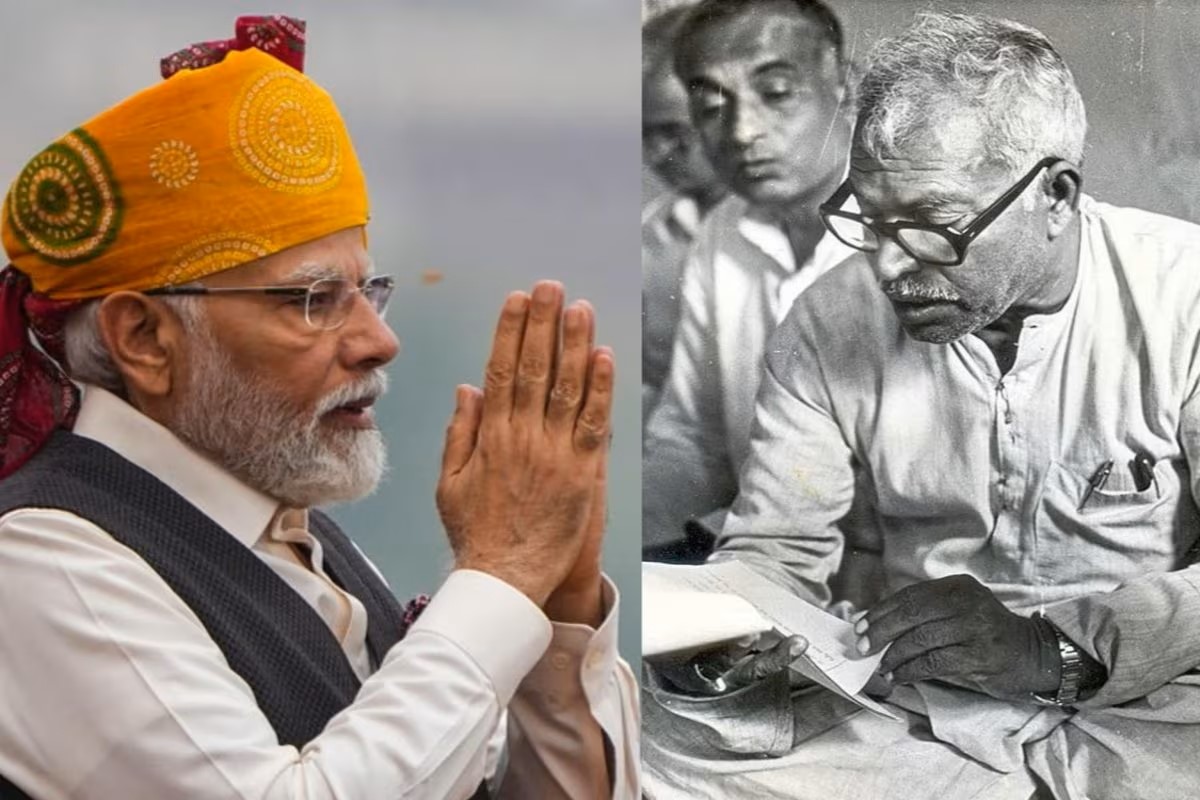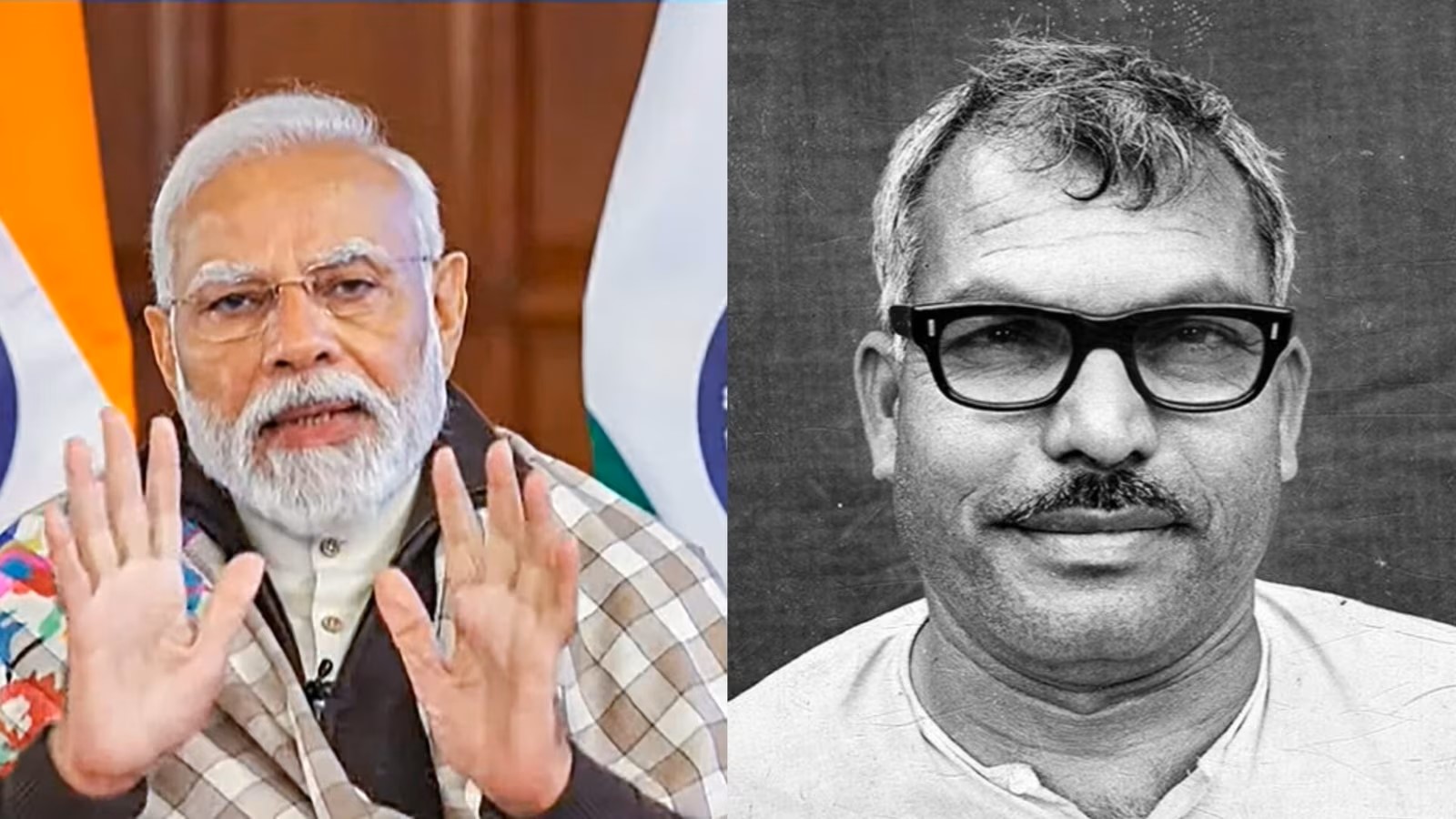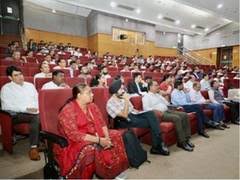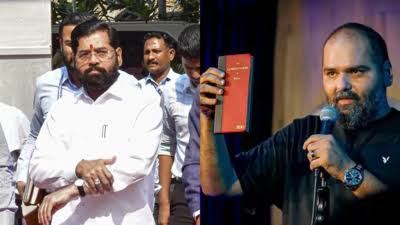The echo of Jan Nayak (People’s Hero) reverberates across India today, echoing the enduring legacy of Karpoori Thakur on his Punya Tithi. This remarkable leader, born amid modest circumstances, transcended his background to become a towering figure in the fight for social justice.
 Thakur’s political journey commenced not in the corridors of power, but in the crucible of India’s struggle for independence. Leaving his studies behind, he plunged into the Quit India Movement, demonstrating an early commitment to a more equitable society. This ignited passion for justice continued to fuel his journey, propelling him into the political arena, where he emerged as a vocal advocate for the marginalized.
Thakur’s political journey commenced not in the corridors of power, but in the crucible of India’s struggle for independence. Leaving his studies behind, he plunged into the Quit India Movement, demonstrating an early commitment to a more equitable society. This ignited passion for justice continued to fuel his journey, propelling him into the political arena, where he emerged as a vocal advocate for the marginalized.
As Deputy Chief Minister and Education Minister of Bihar, Thakur’s actions spoke louder than words. He championed free education for underprivileged children, recognising it as the bedrock of empowerment. He championed land reforms, defying entrenched interests to dismantle exploitative structures and redistribute resources to empower the landless. This spirit of inclusivity extended to his advocacy for reservations for Other Backward Classes (OBCs), recognizing their historical exclusion and demanding a rightful place at the table.
His two terms as Chief Minister of Bihar (1970-71 and 1977-79) were not merely terms of governance, but testaments to an unwavering commitment to social transformation. He abolished the Zamindari system, a potent symbol of feudal oppression, and embarked on ambitious land-distribution programs, aiming to dismantle entrenched hierarchies and empower marginal farmers. These bold initiatives, though met with fierce resistance, were testaments to his unwavering dedication to alleviating the plight of the oppressed.
However, Thakur’s legacy transcends the realm of tangible policy changes. He was more than just a leader; he was an embodiment of hope and inspiration. His simplicity, honesty, and unassuming demeanour resonated deeply with the masses. He wasn’t just advocating for them; he was one of them, speaking their language, understanding their struggles, and embodying their aspirations.
Prime Minister Modi aptly captured this essence, stating, “Shri Karpoori Thakur dedicated his life to the respect and welfare of the backward and weaker sections of the society.” Even if faced with challenges and setbacks, his unwavering commitment to social justice continues to inspire generations.
Therefore, remembering Karpoori Thakur on his Punya Tithi is not merely an act of nostalgia. It is a call to action. It is a reminder that even the most ordinary individuals, armed with unwavering conviction and a genuine desire to serve, can spark momentous change. It is a call to carry his torch forward, to strive for a society where equality, inclusivity, and justice are not mere ideals, but lived realities. Let us honour his legacy not just through words, but through actions, working towards building a nation where every individual, regardless of background or status, has the opportunity to thrive.




